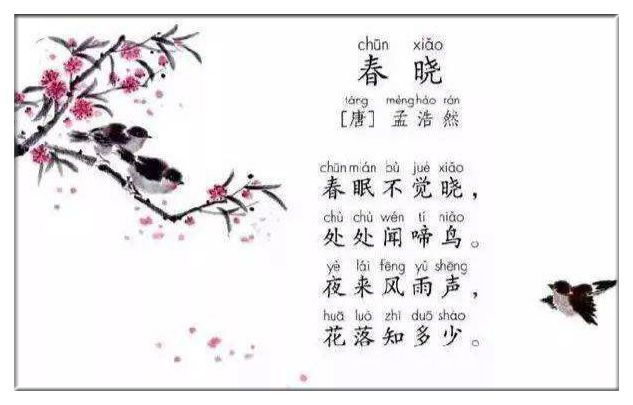Due to the encourgement and expectation from the Blockchain Poet community, it seems that my long-lost love and passion return back again at a stroke. Oh, God knows how my heart bursts into wondrous song like a magic! To be frank, I really never thought that my poems can unexpectedly be missed since I am only a humble English learner. I am not a poet and seldom write poems except to introduce some ancient Chinese poems from time to time which I have recited from childhood. Seeing/learning the outside world is my main goal to come here/Hive. Of course, if lucky enough, I sincerely wish I could make some great penfriends with people from the western world. Don't forget the proverb: it is not what you know but who you know that matters (haha, which I've just learned from one of Youtube teachers I followed). Or maybe people in western world are also interested in my own world which is just outside world for them, ok?
So today I would like to share a simple but very famous ancient Chinese quatrain titled “Spring Morning” to my dear readers.

春晓
孟浩然(689-740)
春眠不觉晓/xiao,
处处闻啼鸟/niao。
夜来风雨声,
花落知多少/shao。
Its author 孟浩然/Meng Haoran was a good friend of the Poem Immortal Libai and skilled in depicting the rural life and scenery, known as a pastoral poet in Tang dynasty. It is said that it is just this poem "Spring Morning" that the young Libai appreciated and worshiped so much that they hit it off straight away on Yellow Crain Tower (now lies in Hubei province) later. The author was more than Libai 12 years old.
We can find the first, the second and the final sentence rhyme in the common syllable "ao". Rhyming is the biggest reason for me to fall in love with poetry. It seems that both Chinese poem and English poem pay attention to rhyming, saving a few free verses.
Now let's enjoy its English translation together!
One version is by Xu Yuanchong who I have mentioned in my last blogs several times.
Spring Morning
- by Meng Haoran
This spring morning in bed I’m lying,
Not to awake till the birds are crying.
After one night of wind and showers,
How many are the fallen flowers?
The other English version is by a sinologist named John Turner.
How suddenly the morning comes in Spring!
On every side, you can hear the sweet birds sing
Last night amidst the storm — Ah, who can tell,
With wind and rain, how many blossoms fell?
For my part, I prefer the second version. It is obvious that we can find the night of spring is turning shorter compared with the winter. So unconsciously the dawn has come all of sudden and we are awaken and surrounded by the birds' joyful singing. Such a bright and agreeable spring morning!
Then we recall the wind and rain last night again. Oh, there are different interpretations here. Some people regard the fallen blossoms as a kind of reminder about cherishing and taking pity on the fleeting spring since the spring flowers are so tender and short-lived; others insist that the wind and rain represents a life-changing power from the Nature. It is a common sense that spring is the season where everything begins from its new life. Just as a well-known proverb goes: "there are a thousand Hamlets in a thousand people's eyes", a good poem should be open to interpretation.
All in all, it is a little classical ancient Chinese poem about spring, especially suitable for reading it loudly. Indeed, this poem is often the first thing that comes to my mind when I wake up in the spring morning of our countryside yard. While the sunshine is so radiant and enchanting, and the birds are chorusing allego, I really can't help reciting this lovely quatrain. The few words contain a wealth of imagary and sensual pleasure, such as from dawn to dark, then to day; from sight--spring light to hearing--birds singing and the sound of spring wind and shower, back to the sight--fallen blossoms as well as the smell--flower fragrance.
I hope you love this poem! Thanks for reading! See you over in the next ancient Chinese poem. Our slogan is "reading a good poem is like tasting a cup of fine wine".
Beautiful poem. I've never heard this one before. Very nice and good explanation! Keep sharing, please. We need more poems from other countries here.
Thank you for your encouragement and support very much! I'm really so happy and honored to know you enjoy this poem. I'll try my best to share some small but classical ancient Chinese poetry.
Thanks for sharing
Chinese poetry and Japan poetry are beautifull Maybe @dbooster read this post
Thank you for reading this poem! Yeah, I have learned a lot from his blogs and he is my first teacher of Japanese Haiku.